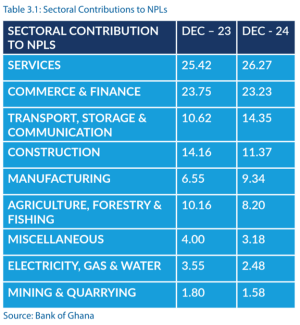
By Adeola Racheal ADETOYE
Once considered a bureaucratic checkbox or a necessary cost of doing business, compliance is now emerging as a defining feature of corporate strategy. Across continents and sectors, a new reality is setting in: firms that embed compliance into the core of their operations don’t just avoid penalties, they also gain trust, unlock capital, and accelerate growth.
The traditional mindset where compliance was reactive and relegated to legal departments is no longer fit for purpose. Today’s regulatory environment is dynamic, unforgiving, and increasingly global. Whether it’s financial controls, sustainability disclosures, data protection, or competition law, the price of non-compliance is not just legal either; it’s commercial, reputational, and in some cases, existential.
Few stories illustrate this better than Boeing’s ongoing crisis of lapses in safety standards and manufacturing oversight have culminated in fatal accidents, regulatory sanctions, and, perhaps most damagingly, a profound loss of trust among airline partners and the travelling public.
The repercussions have been far-reaching: Boeing’s share price has plummeted, congressional scrutiny in the U.S. has intensified, and competitor Airbus has rapidly gained market share. The ripple effects have extended beyond the U.S. aviation sector.
In China, for example, the crisis has prompted airlines and policymakers to accelerate efforts to develop indigenous aviation technologies, seeing an opportunity in Boeing’s fall from grace.
Consulting firms are not immune either. McKinsey & Company’s African subsidiary recently agreed to pay over US$122 million to settle charges related to bribery and illegal business practices in South Africa (Ogunjuyigbe, O., 2024). The scandal has stained the firm’s reputation on a continent where trust and institutional credibility are pivotal to long-term partnerships.
In Europe, the regulatory landscape is particularly complex. The region operates within a multilayered regulatory framework that includes the General Data Protection Regulation (GDPR), anti-money laundering (AML) requirements, as well as environmental and broader Environmental, Social, and Governance (ESG) directives.
This intricate web of rules presents both technical and cultural compliance challenges for organizations operating across jurisdictions.
Recent enforcement actions by European authorities have underscored the significant risks associated with non-compliance. Meta was fined €1.2 billion by the Irish Data Protection Commission in 2023 for data privacy violations. Amazon faced a €746 million sanction in Luxembourg, and Enel Energia SpA, the Italian energy giant, was fined over €79 million in 2024 for GDPR breaches (Data Privacy Manager, 2025).
These cases are not just cautionary tales; they are strategic turning points. Firms that regard compliance as a box-ticking exercise often find themselves exposed when regulators, investors, or the public demand accountability. By contrast, firms that approach compliance as a growth lever are reaping significant rewards.
Take Safaricom, Kenya’s largest telecom provider. After years of regulatory turbulence, including market dominance concerns and disputes over its mobile money platform, the company has orchestrated a turnaround. In FY2024, Safaricom’s net profit rose by 11percent to US$540 million, with its Ethiopian operations which once struggled under compliance constraints cutting losses by over 50percent and contributing nearly 10percent of group revenue.
With group revenue hitting a record US$3 billion, the message is clear: compliance can reposition a business, rebuild trust, and drive market penetration (Techpoint Africa, 2025). Similarly, in Ghana, the Ghana Revenue Authority (GRA) adjudged Hapag-Lloyd Ghana Ltd, the local arm of the global shipping company, as the best tax compliant company for the 2020 to 2022 assessment years. This strengthened the public appeal and social license of the multinational company (Business Ghana, 2023).
This shift isn’t confined to telecoms or maritime. In Nigeria’s fintech space, regulatory scrutiny forced startups to mature rapidly. Paystack, once lauded for innovation, was fined ?250 million –approximately US$190,000– by the Central Bank of Nigeria (CBN) in early 2025 for offering services beyond its license (TechCabal, 2025).
The resulting reputational hit was swift, but lessons were learnt. By contrast, OPay’s careful alignment with regulatory standards earned it the Financial Inclusion Innovation Award in 2024, validating its strategy of compliance-led expansion (Daily Trust, 2025).
The broader lesson? Compliance isn’t just about staying out of trouble, it’s equally about standing out.
Regulatory alignment is fast becoming the key to accessing global markets, particularly for African exporters targeting Europe. Under the EU’s new deforestation regulation, cocoa producers, timber merchants, and palm oil exporters must verify the environmental integrity of their supply chains.
Failure to comply risks exclusion from a US$500 billion market. According to the Commonwealth Secretariat, non-compliance could cost African countries up to US$11 billion in export losses (Zhuawu, C., n.d.). Therefore, companies that invest early in traceability and sustainability are not only meeting standards, they are gaining first-mover advantage in securing market access, and signaling long-term viability.
Moreso, in an era where consumers buy values as much as products, trust is the ultimate currency. Companies that transparently disclose supply chain data, ESG performance, and customer privacy protections are gaining brand loyalty and pricing power. According to the PwC Consumer Intelligence Series (2021) (PwC, 2021), enterprises that are transparent about their ethics and compliance programs win customer loyalty and are often perceived as market leaders.
Investors are noticing too. With ESG assets under management surpassing US$30 trillion globally, fund managers are making regulatory maturity a condition for capital allocation (Bloomberg Intelligence, 2024). Companies with strong governance structures and transparent reporting are not only more attractive to investors, they are also more resilient. As a result, for companies seeking to raise capital, strong compliance is no longer optional; it is imperative.
Even internally, compliance pays off. Companies that integrate compliance into their corporate culture report higher employee retention, better cross-functional collaboration, and fewer operational shock (Fang, Y., Fiordelisi, F., Hasan, I., Leung, W.S. and Wong, G., 2023). Compliance is becoming increasingly tied to executive compensation, board accountability, and performance metrics, not out of obligation, but because it drives better outcomes.
Across Europe, companies such as SAP, Unilever, and Roche are not only meeting compliance requirements, they are setting the benchmark. Their strategies, grounded in transparency, sustainability, and ethical leadership, have strengthened brand equity and generated long-term shareholder value.
Africa too has its rising exemplars. From South Africa’s Clover to Togo’s ASKY Airlines, a new generation of enterprise are embedding scalable, compliant systems from inception. This proactive approach gives them a structural edge as regulatory regimes across digital finance, agritech, and cross-border trade continue to tighten.
Therefore, to unlock the full strategic value of compliance, companies must move beyond reactive rule-following and embed it into core business processes. Compliance should be treated as a design principle, not a policing mechanism, and integrated from product development to market entry.
Moreover, investments in compliance technology and analytics to automate risk monitoring and enable regulatory foresight are no longer optional. Cross-functional collaboration must be promoted, with legal, risk, and business teams working in tandem around shared metrics that link compliance to performance.
Transparency should be woven into stakeholder communications, with compliance metrics serving as tangible proof of integrity. Most importantly, leadership and employees alike must be trained to view compliance not merely as value protection, but as value creation.
Thus, the strategic question is no longer, “What will compliance cost us?” but rather, “What opportunities does it unlock?”
Whether in mitigating reputational risk, expanding into new markets, attracting values-driven capital, or earning consumer trust, compliance has become an indispensable enabler of modern business success.
In environments marked by regulatory volatility (Africa included) those who treat compliance as a platform for innovation rather than a burden will lead the way. Ultimately, in the years ahead, the most competitive companies won’t necessarily be the ones that move the fastest, but those that move right.
>>>the writer is an accomplished International Business Advisor and Corporate Governance expert, with a strong track record of service across leading business service provider firms in Africa. With a solid foundation in business regulatory compliance and governance broad sectoral experience, she offers strategic advisory support to international businesses navigating the complex and evolving regulatory landscape of Nigeria. Her areas of expertise include regulatory compliance, policy development, board evaluations, and the implementation of corporate governance frameworks. she has played a pivotal role in supporting numerous business expansions into Nigeria by providing expert guidance on navigating the country’s regulatory environment. Her influence also extends beyond Nigeria through internationally relevant research and thought leadership in governance and compliance.
She works closely with corporate boards, executive leadership, and key stakeholders to design and implement governance structures that promote transparency, operational efficiency, and accountability. Her advisory services are tailored to align with evolving regulatory standards and global best practices, ensuring that clients make informed, legally sound decisions that enhance their organizational resilience and integrity. The author is an active member of several prestigious professional bodies, including the Nigerian Bar Association, the Institute of Chartered Secretaries and Administrators of Nigeria (ICSAN), the Chartered Governance Institute (CGI) of the United Kingdom & Ireland, and the Society for Corporate Governance Nigeria.
The post Turning business compliance into competitive advantage appeared first on The Business & Financial Times.
Read Full Story













Facebook
Twitter
Pinterest
Instagram
Google+
YouTube
LinkedIn
RSS